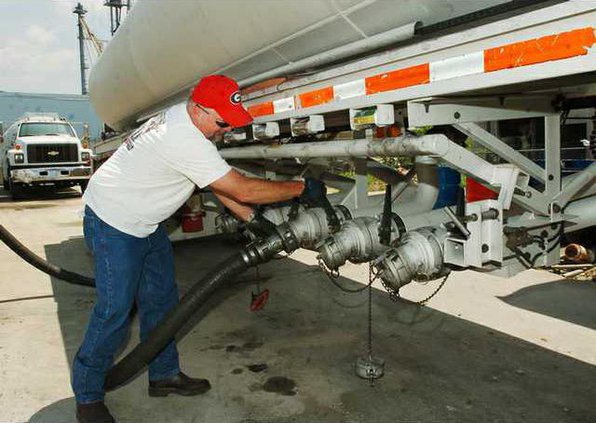With ever-rising prices on gas station signs, it’s easy to get concerned we might be in for a repeat of last summer’s $4-a-gallon gasoline.
Probably not, says Gregg Laskoski, managing director of public relations, AAA Auto Club South.
Motorists might not even see the $3 mark.
"What’s pushing retail prices is the rising crude oil prices," Laskoski said Tuesday. "A number of analysts are saying that they expect crude oil to peak somewhere between $70 and $80 per barrel in the next few weeks."
If that happens, "we would then expect retail gasoline prices to run parallel to that, then start to level off," he said.
"A lot of other factors come into play (regarding retail prices). Things like the value of a dollar would have an impact. ... It’s unlikely (at the peak) that we would see a national average close to $3 a gallon. We’d probably be closer to somewhere between $2.80 and $2.90."
On Sunday, AAA reported that the national average price of gasoline rose 11 cents per gallon in the past week, with Georgia seeing a 10-cent jump.
Last year at this time, the average gas price in Georgia was $3.95 per gallon.
Still, "we believe a prolonged runup in fuel prices is likely to instill consumer resistance in much the same way we saw last year," Laskoski said.
"And that is obviously counterproductive to an economy trying to recover from recession."
Prices all over the map aren’t helping Jason Smallwood, owner of Smallwood & Associates, a commercial floor covering business.
"The way my business works is we bid on public and private projects," he said, while filling up his pickup truck Tuesday at Harrison Oil Co., 409 Moreno St., in Gainesville.
"You bid on a job that may not start for six or eight months, so as I’m bidding it, there’s no way to tell if gas is going to be at $4 per gallon or $2.
"When it goes up to $4, it really puts a hurting on your profit."
Smallwood said plateaued prices would be nice.
"Then you could see what your overhead was. We’ve got about 20 trucks on the road and $2 a gallon makes a huge
difference."
Nathan Fauscett, who manages Harrison Oil, said prices vary widely as motorists travel down the street, but that doesn’t mean the businesses with higher prices are gouging consumers.
"They just bought (gas) at the wrong time. They just needed it at the wrong time," he said.
"It’s a crazy game, nothing like it used to be, when overnight you’d see 1- or 2-cent swings. Now, it’s not uncommon to see (increases of) 6, 7, 8, 9, 10 cents a night."
Harrison supplies fuel, gas and bulk oils for local businesses, including farmers and some "mom-and-pop stores," Fauscett said.




